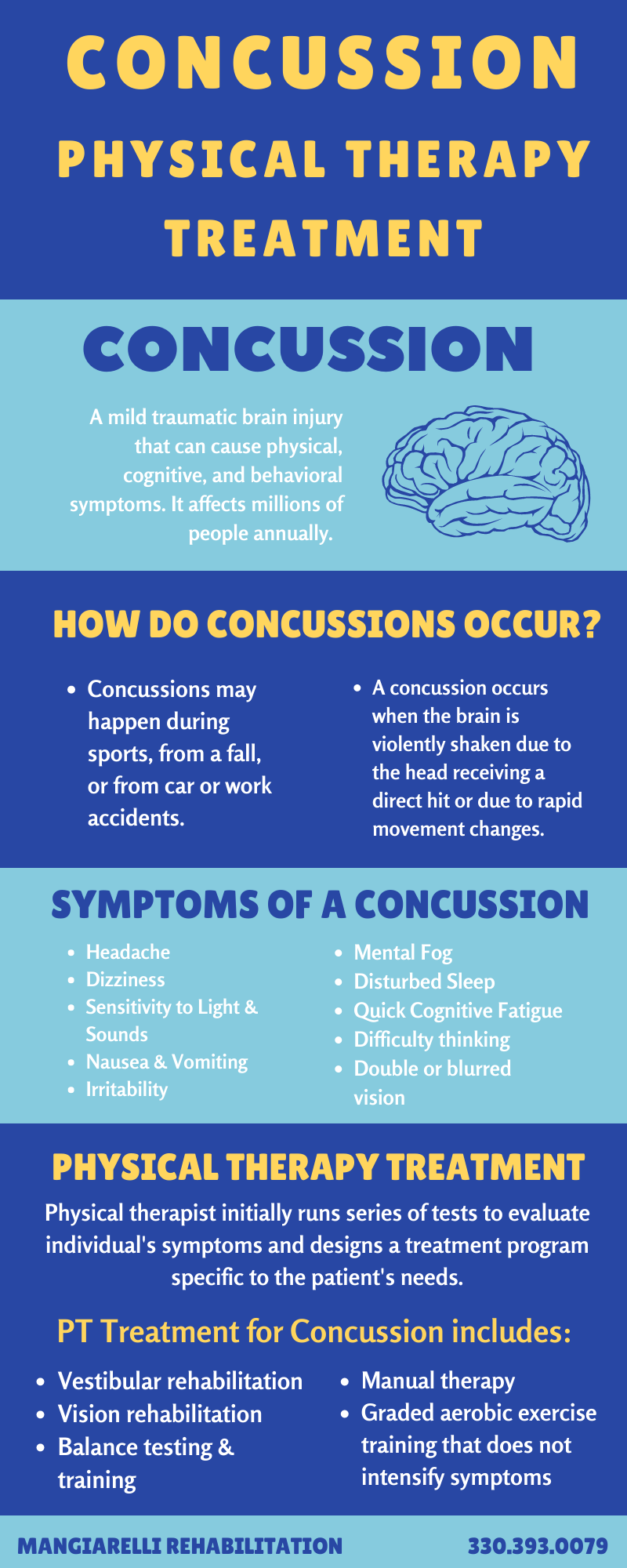Concussion Treatment [Infographic]
A concussion is a mild traumatic brain injury that can cause physical, cognitive, and behavioral symptoms. Between 1.7 to 3 million sports- and recreation-related concussions happen each year, 300,00 of which are football-related. Five of ten concussions go unreported or undetected.
Concussions can happen during sports or due to a fall or a car or work accident. A concussion occurs when the brain is violently shaken due to the head receiving a direct hit or due to rapid changes of movement. This causes an unpredictable injury to any part of the brain. Symptoms of brain injury may develop immediately or lead to delayed changes in the brain’s function.
Symptoms of a concussion include headache, dizziness, sensitivity to light and sound, nausea and vomiting, irritability, disturbed sleep, mental fog, difficulty thinking, quick cognitive fatigue, and double or blurred vision. Following a concussion, it is imperative to have a patient-specific and well-monitored treatment plan to ensure a safe, gradual recovery.
Physical therapists are highly qualified to examine, evaluate, and treat individuals who have had a concussion. Receiving proper rehabilitative care post-concussion can decrease the time to medical clearance and leads to an overall faster and safer recovery. The physical therapist runs a series of tests to evaluate the patient’s symptoms and designs a treatment program customized to the patient’s needs and goals.
Physical therapy treatment for concussions includes vision and vestibular rehabilitation, manual therapy, balance testing and training, and a graded exercise program that does not intensify symptoms. A gradual, sub-symptom exercise training program (supervised and carefully monitored by the physical therapist) is beneficial for the patient. It allows the patient to adapt to increased physiological demands of activity over time and helps athletes begin to regain physical fitness.
Receiving timely and well-monitored treatment for a concussion is crucial to achieve full recovery and return to activities and sports safely. A physical therapist uses evidence-based treatment and a personalized rehabilitation plan to help patients recuperate safely and achieve long-term health post-concussion.
